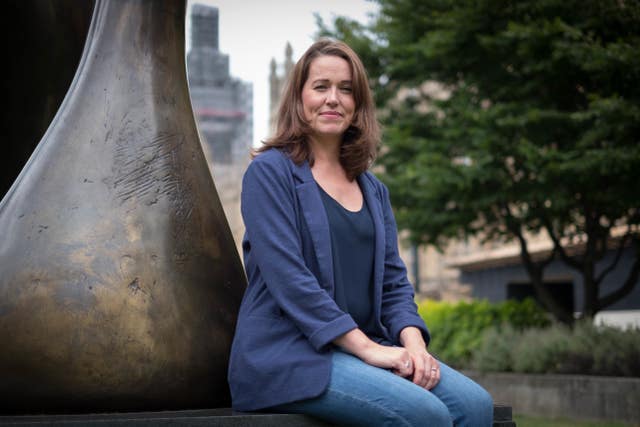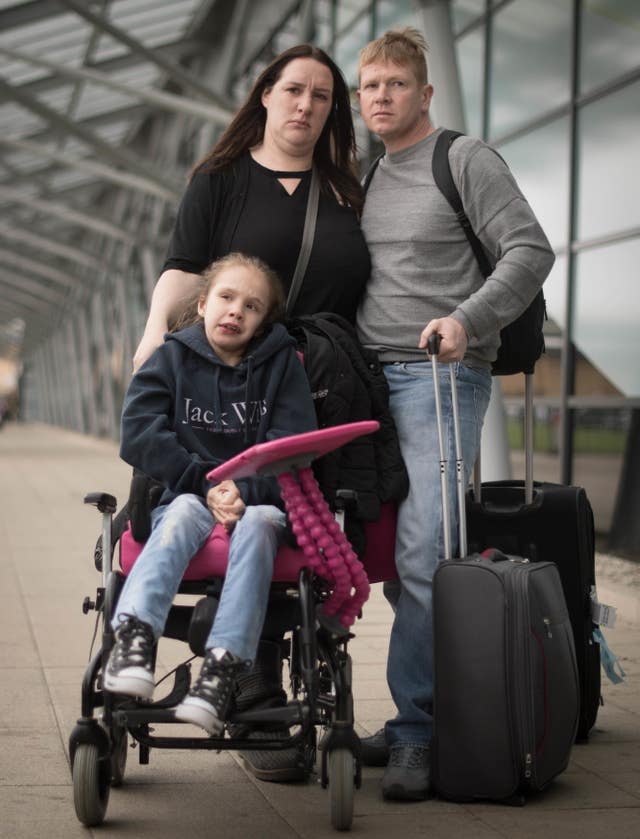
Campaigners have welcomed a “forward-thinking and positive” NHS England review into the use of medical cannabis to treat illnesses like severe epilepsy.
The report found “major hurdles” in prescribing cannabis-based treatments included concerns about the potential harm to mental health and a lack of evidence on overall effectiveness.
It recommended more clinical trials and the creation of a “UK-wide paediatric specialist clinical network” to provide expert advice to “very cautious” doctors worried about long-term harm.

The report also noted severe paediatric epilepsy carries “a risk of sudden death” and said many licensed drugs provided “little obvious benefit and an increased risk of adverse effects”.
Concerns around mental health impairment stem from exposure to the psychoactive ingredient THC (tetrahydrocannabinol) in children’s developing brains.
Currently just two patients hold NHS prescriptions for THC-bearing medical cannabis in the UK.
Peter Carroll, director of the End Our Pain Campaign said, the “big step forward” was the NHS signalling that “evidence from observational trials has a role”.
He added: “For many of the families, this is a matter of life and death.”
Rule changes last year allowed doctors to prescribe cannabis-based products but parents say they cannot easily access the medicines without paying thousands of pounds for an import licence.
Some parents have even resorted to smuggling cannabis oils from Holland despite holding legal private UK prescriptions.

The report was ordered by Health Secretary Matt Hancock in April to address “barriers” in the system after he met parents who credit medicinal cannabis with easing serious and frequent seizures in their epileptic children.
Professor Mike Barnes, a neurologist and chairman of the Medical Cannabis Clinicians Society, said the “forward-looking and positive review” recognised the “need for accepting different but valid evidence for the efficacy of cannabis as a medicine”.
It was also welcomed by campaigner Hannah Deacon, mother of epileptic eight-year-old Alfie Dingley, who was the first to obtain an NHS prescription.
Sir Mike Penning MP, co-chair of the All-Party Parliamentary Group on Medical Cannabis Under Prescription, said: “There are positives in this report which we welcome.
“But the stark reality is that every day that goes by with these children not getting access to medical cannabis is a day too many.
“It’s a day of suffering for the child, and unconscionable emotional and financial stress for the parents. We need the detail, and we need it fast.”
Despite the broadly embraced NHS review, campaigners criticised as “outdated” and “extremely restrictive” draft guidance also published on Thursday by the National Institute for Health and Care Excellence (Nice).
It looked at the use of cannabis products to treat patients undergoing chemotherapy, suffering chronic pain and spasticity, as well as epilepsy.
Nice did not recommend the products for severe epilepsy “because there was a lack of clear evidence that these treatments provide any benefits”.
The guidelines also declined to recommend the use of cannabis-based Sativex because it was not “cost-effective” in “relation to the benefits it provides”.
It did approve the use of Nabilone, a synthetic cannabinoid which mimics THC’s effects, as an “add-on” for adults with chemotherapy-induced nausea which did not respond to “conventional licensed medicines”.
Prof Barnes added: “I hope that Matt Hancock takes advice from his own review and rejects the outmoded and outdated draft Nice guidelines.”
Genevieve Edwards, from the Multiple Sclerosis Society added: “We’re bitterly disappointed by these guidelines.
“Nice’s refusal to recommend cannabis for pain and muscles spasms, or to fund Sativex on the NHS, means thousands of people with MS will continue to be denied an effective treatment.”
The report published on Thursday is entitled Barriers to accessing cannabis-based products for medicinal use on NHS prescription.


Comments: Our rules
We want our comments to be a lively and valuable part of our community - a place where readers can debate and engage with the most important local issues. The ability to comment on our stories is a privilege, not a right, however, and that privilege may be withdrawn if it is abused or misused.
Please report any comments that break our rules.
Read the rules here